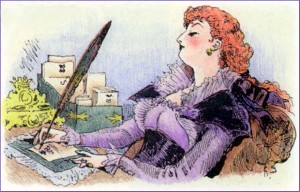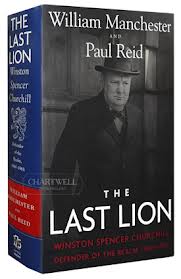 A friend of mine gave me a recent article revealing that women are still using male pen names, or initials to disguise the very fact they are women. The statistics show that men will invariably ignore anything that hints at a feminine hand, whereas women will read either sex. The publishing industry does nothing to encourage women to fight the trend, either. They ask or even demand that a science fiction or hard boiled suspense author write under initials or a male pseudonym. They claim they want to gain every reader, and if a man picks up a book in a typically masculine genre with a woman’s name on the cover, they are likely to put it right back down again, and who wants to lose a sale this way? Female authors wanting desperately to be published will give in to the pressure and the cycle continues. We all know the historical pen names–The Bronte sisters; George Sand–I couldn’t remember her real name if I tried; Isak Dinesen–author of Out of Africa; E. Hinton is really Susan Eloise Hinton-surprise, she authored The Outsiders, a classic about teen boys that her publisher felt would never be accepted if her sex was known; and a more recent fraud, J. K. Rowling–if she used her real first name, her publishers contended, would a 12 year old boy have picked up the book? We’ll never know.
A friend of mine gave me a recent article revealing that women are still using male pen names, or initials to disguise the very fact they are women. The statistics show that men will invariably ignore anything that hints at a feminine hand, whereas women will read either sex. The publishing industry does nothing to encourage women to fight the trend, either. They ask or even demand that a science fiction or hard boiled suspense author write under initials or a male pseudonym. They claim they want to gain every reader, and if a man picks up a book in a typically masculine genre with a woman’s name on the cover, they are likely to put it right back down again, and who wants to lose a sale this way? Female authors wanting desperately to be published will give in to the pressure and the cycle continues. We all know the historical pen names–The Bronte sisters; George Sand–I couldn’t remember her real name if I tried; Isak Dinesen–author of Out of Africa; E. Hinton is really Susan Eloise Hinton-surprise, she authored The Outsiders, a classic about teen boys that her publisher felt would never be accepted if her sex was known; and a more recent fraud, J. K. Rowling–if she used her real first name, her publishers contended, would a 12 year old boy have picked up the book? We’ll never know.
Year: 2013
Resolution Reading
by Jas Faulkner
 The covers of the books in the window of Sam and Tab’s book store featured well-toned abs, beautified, decluttered homes, language lessons, and a few self-help titles. For a characteristically grim touch, Sam dragged out a skeleton and had it seated in one corner of the window display reading Jim Fixx’s “The Complete Book of Running”.
The covers of the books in the window of Sam and Tab’s book store featured well-toned abs, beautified, decluttered homes, language lessons, and a few self-help titles. For a characteristically grim touch, Sam dragged out a skeleton and had it seated in one corner of the window display reading Jim Fixx’s “The Complete Book of Running”.
Being the kind of person who will spend time looking at the titles on shelves in pictures, I sent Sam’s IPhoned photo to my email to get a better look.
“What you don’t see,” she said, “is the sign next to the cash register that says we’ll give them a coupon for half off a used book if they sign a promise to not bring them in for trade during the months of February or March of 2013.”
Can Digital Books Furnish a Room?
 If I were to make a New Year’s resolution for 2013, it would be to read William Manchester’s Churchill biography, the last volume of which was completed by Paul Reid in 2012, nearly eight years after Manchester’s death. Of course, I don’t make resolutions since there are more than enough failures to tolerate in life without me adding to the list. But Reid’s story is almost as interesting as Churchill’s. Reid was a college dropout who went back to school in his 40s, and at 46 became an intern at the Palm Beach Post. It was through his newspaper work that he met Manchester, who was ill and dying and unable to finish the last volume. Manchester unexpectedly chose Reid to finish the third volume, even though Reid had never written a book before, let alone a biography. He wasn’t even a historian. Yet Manchester saw something appealing in Reid’s background and approach, something a more conventional thinker would have missed. For me, the subject of middle-aged career metamorphosis has a new relevance; I am often asked why, as old as I am, would I want to recreate myself as a bookseller. The answer, which is hard to explain, is that I just didn’t see it as a big deal. I never thought of changing careers as being that strange. And neither did Reid. He seems to have moved from one thing that interested him to the next, taking opportunities that presented themselves and not spending too much time doubting himself. So, that’s one book I hope to read this year.
If I were to make a New Year’s resolution for 2013, it would be to read William Manchester’s Churchill biography, the last volume of which was completed by Paul Reid in 2012, nearly eight years after Manchester’s death. Of course, I don’t make resolutions since there are more than enough failures to tolerate in life without me adding to the list. But Reid’s story is almost as interesting as Churchill’s. Reid was a college dropout who went back to school in his 40s, and at 46 became an intern at the Palm Beach Post. It was through his newspaper work that he met Manchester, who was ill and dying and unable to finish the last volume. Manchester unexpectedly chose Reid to finish the third volume, even though Reid had never written a book before, let alone a biography. He wasn’t even a historian. Yet Manchester saw something appealing in Reid’s background and approach, something a more conventional thinker would have missed. For me, the subject of middle-aged career metamorphosis has a new relevance; I am often asked why, as old as I am, would I want to recreate myself as a bookseller. The answer, which is hard to explain, is that I just didn’t see it as a big deal. I never thought of changing careers as being that strange. And neither did Reid. He seems to have moved from one thing that interested him to the next, taking opportunities that presented themselves and not spending too much time doubting himself. So, that’s one book I hope to read this year.
On the subject of doubts, one that I felt gently tugging at my sleeve as I prepared to invest myself into this new business was my awareness of the steady migration of book buyers from paper reading to digital reading. It was hard not to take seriously the threat to hard-copy booksellers implicit in headlines like this from the New York Times from January 22, 2012: “Tablet and E-Reader Sales Soar.” The article reported that the number of adults in the United States who own tablets and e-readers nearly doubled from mid-December to early January last year.
